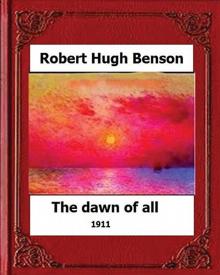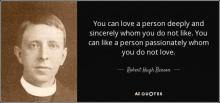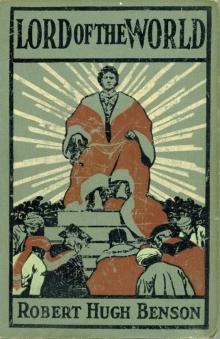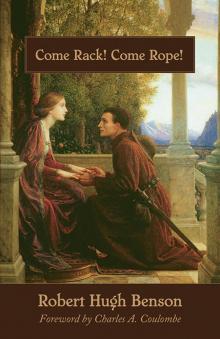- Home
- Robert Hugh Benson
The Dawn of All Page 13
The Dawn of All Read online
Page 13
(IV)
It was on the following morning that he spoke with the King.
The two priests had said Mass in their oratory, and an hour laterwere walking in the park beneath the palace windows.
It was one more of that string of golden days, of which they hadalready enjoyed so many, and the splendour of that amazinglandscape was complete.
They had passed below the enclosure known as the "King's Garden,"and were going in the direction of the Trianon, which Monsignorhad expressed a desire to see, and had just emerged into theimmense central avenue which runs straight from the palace to thelake. Above them rose the forest trees, enormous now, yet tamedby Lenotre's marvellous art, resembling a regiment of giantsperfectly drilled; the grass was like carpets on all sides; thesky blazed like a blue jewel overhead; the noise of singing birdsand falling water was in the air. But above all there towered ontheir right, beyond the almost endless terraces, the splendidpalace of the kings of France, royal at last once more. Andthere, as symbol of the Restoration, there hung round theflagstaff as he had seen it yesterday the blue folds and thelilies of the monarchy.
It was no good trying to frame words as to what he felt. He hadsaid all he could, and it was useless. Father Jervis seemedunable to understand the fierce enthusiasm of a man who nowexperienced all this, as it appeared, for the first time. Hewalked silently--exulting.
There seemed not many people abroad this morning. The two hadpresented an order, obtained through Monsignor Allet, at the gatesbelow the Orange Gardens, and had learned from the sentry thatuntil the afternoon this part of the park was closed to the public.Here and there, however, in the distance a single figure made itsappearance, walking in the shade or hurrying on some errand.
The priests had just come out from the line of trees and hadset foot in the avenue itself, when, twenty yards farther up,from the entrance to some other path parallel to their own, agroup came out, and an instant later they heard themselveshailed and saw Monsignor Allet himself, in all his purple,hurrying towards them.
"You are the very men," he cried, again stretching out hishands in a welcoming French gesture. "His Majesty was speakingof you not five minutes ago. He is here, in the garden. Shall Ipresent you now?"
Father Jervis glanced at his friend.
"His Majesty is very kind----" he began.
"Not a word more! If you will follow me and wait an instant atthe entrance, I will speak with His Majesty and bring you in."
"I have not my ferraiuola---" began Monsignor.
"The King will excuse travellers," smiled the Frenchman.
The entrance to the "King's Garden" on this side passes beneath anarch of yew, and here the two waited.
Somewhere beyond the green walls they could hear talking, and nowand again a burst of laughter. Then the talking ceased, and theyheard a single voice.
"In what language----" began Monsignor Masterman nervously.
"Oh! English, no doubt. You can't talk French?"
Monsignor shook his head.
"Not a hundred words," he said.
Again came the quick footstep, and the French priest appeared,still gay, but with a certain solemnity. "Come this way,gentlemen," he said. "The King will see you." (He glanced at theprelate.) "You won't forget to kneel, Monsignor."
To the English prelate the scene that he saw, on emerging at lastinto the open space in the middle, protected by the ancientyews--even though he should have been prepared for it by all thathe had already seen--simply once more dazed and stupefied him.
The centre of the space was occupied by a round pond, perhapsthirty yards across, of absolutely still water, and in thismirror, shaded by the masses of foliage overhead, was reflected apicture that might have been taken straight from some paintingtwo hundred years old. For, on the semicircle of marble seatsthat stood beyond the water, sat a company of figures dressedonce more in all the bravery of real colour and splendour, asfrom days when men were not ashamed to use publicly and commonlythese glittering gifts of God.
Monsignor hardly noticed the rest (there were perhaps twelve orfifteen all told, with half a dozen women amongst them); helooked only, as he came round the pond, at the central figurethat advanced to meet him. Twice he had seen him yesterday--yetthose occasions had been public. But to see the King now, at easeamongst his friends, yet still royally dressed in his brilliantblue suit and feathered hat, with his tall cane--to see the wholecompany, gay and brilliant, talking and laughing, taking theirpleasure in the air before breakfast--the whole thing somehowbrought home to him the reality of what appeared to him as achange, more than had all the pomps and glories of the daybefore. Splendour no longer seemed ceremonial, but natural.
Monsignor Allet was explaining something in rapid French in theKing's ear, and as the two came up, the face that listened smiledsuddenly with intelligence.
"I give you welcome," he said in excellent English. "Come,gentlemen" (he turned to the others, who had risen to their feetas he rose), "we must be getting homewards. Monsignor!" (and hebeckoned to the two English priests to walk with him.)
That walk seemed like a dream.
They went leisurely upwards towards the palace, through yew alleyafter yew alley, French chattering sounding behind them as theywent; and the King, still in fluent English, though with anaccent that increased as he talked, questioned them courteouslyas to England, spoke of the disputation of yesterday, discussedfrankly enough the situation in Germany, and listened withattention to the remarks of Father Jervis; for MonsignorMasterman was discreetly silent for the most part.
It was not until the great doors of the palace flew open at last,and the rows of liveried men showed within, that the King dismissedthem. He turned on the steps and gave them his hand to kiss. Thenhe raised them from their knees with a courteous gesture.
"And you go to Rome, you say?"
"Almost immediately, sire. We shall be there for SS. Peter and Paul."
"Present my homage at the feet of the Holy Father," smiled theKing. "You are fortunate indeed. I have not seen His Holiness forthree months. Good day--gentlemen."
The two passed again in silence down the terraces on their wayto the Trianon.
"It is amazing," burst out Monsignor suddenly. "And the people.What of them? Is there no resentment?"
"Why should there be?" asked the other.
"But they are excluded from the palace and the park. It was notso a hundred years ago."
"Do you think they are any the less happy?" asked Father Jervis."My dear Monsignor, surely you know human nature better thanthat! They have lost the vulgarity of Versailles, and they haveregained its royalty. Don't you see that?"
"Well!"--Monsignor paused. "It's simply medievalism back again,it seems to me."
"Exactly!" said the other. "You have hit it at last. It ismedievalism--that is to say, human nature with faith andreverence, and without cant."
He paused again, and his eyes twinkled.
"You know honours and privileges are worth nothing if every onehas them. If we all wore crowns, the kings would go bareheaded."
CHAPTER V

 The Dawn of All
The Dawn of All By What Authority?
By What Authority? The King's Achievement
The King's Achievement Lord of the World
Lord of the World The History of Richard Raynal, Solitary
The History of Richard Raynal, Solitary Come Rack, Come Rope
Come Rack, Come Rope